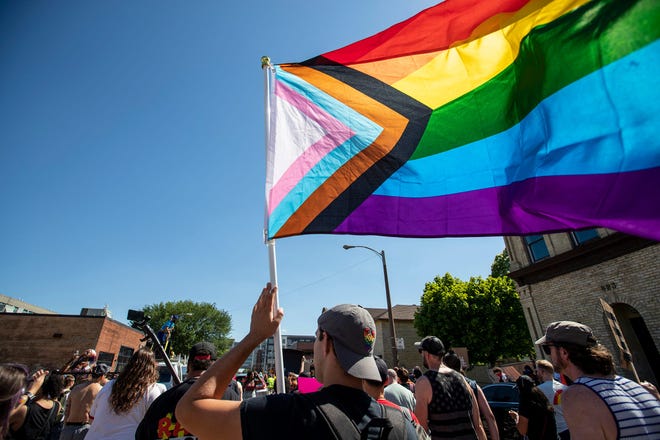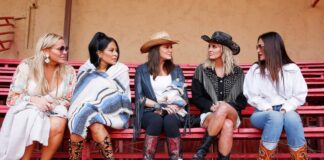The number of Americans in the LGBTQ community has reached a record high, according to a 2022 Gallup poll, with 7.1% of U.S. adults identifying as LGBTQ.
As we learn more about the Colorado Springs shooting and the community mourns those who lost their lives and were injured at Club Q, many have questions about how to support their LGBTQ+ loved ones.
The best first step is to learn about the community. Asking your LGBTQ+ friends and family is an option but be mindful of placing the burden of your education on others when there are many free resources at your disposal.
Colorado Springs shooting live updates:Suspect faces 5 counts of murder, hate crimes
LGBTQ resources:How to help Club Q victims after Colorado Springs shooting
What does the ‘Q’ in LGBTQ stand for?
The Q in LGBTQ stands for queer in most settings, but it can also mean questioning. LGBTQ is an acronym that’s an identifier as much as it is a work in progress for the past few decades.
What each letter in LGBTQ means:
- L: Lesbian
- G: Gay
- B: Bisexual
- T: Transgender
- Q: Queer or questioning
In recent years, many have added I and A — intersex and asexual — to the lineup. The plus sign is another addition to the acronym to represent identities in the community that perhaps don’t fit into the other letters like pansexual, polyamorous, two-spirited or others who don’t want to label their sexuality.
The ‘B’ in LGBTQ:History, definition, difference between bisexual and pansexual
Learn more:LGBTQ definitions every ally should know

What does queer mean?
Queer is an adjective used by those who are not exclusively heterosexual. The term is often used as a self-identifier for those who don’t feel their sexuality fits into other terms like lesbian, gay or bisexual. Many LGBTQ individuals feel some labels are “too limiting and/or fraught with cultural connotations they feel do not apply to them,” GLAAD writes.
According to a 2022 Gallup poll, 0.3% of Americans and 4.3% of LGBTQ Americans identify in the “other” category, which includes queer.
Reclaiming the word
For many, reclaiming words that were once used as offensive or controversial is an empowering practice. For others, using that word is a painful reminder of the past.
The first documented use of queer as a slur was in 1894 when John Douglas, the 9th Marquess of Queensberry, discovered his son was in a relationship with Oscar Wilde. “Snob Queers” was used as a derogatory term to describe gay men in a lengthy court case brought on by Douglas. Flipping the term on its head, protesters in the midst of the Aids epidemic began using the word queer in chants — “We’re here, we’re queer, we’re not going shopping!” and “We’re here, we’re queer, get used to it!”
In 1990, activist organization Queer Nation was founded with a mission to increase visibility and decrease LGBTQ violence. Queer Nation mobilized protests, hung banners and distributed pamphlets that read “We’re here, we’re queer and we’d like to say hello!”
Widespread use grew from there. GLAAD officially added the Q to the acronym in its resource guide in 2016, and the Associated Press wrote in 2018 that adding Q to LGBT was acceptable style for journalists. Younger LGBTQ Americans in particular are reclaiming the word as they embrace a shift toward fluidity in identity. But it’s still important to keep in mind that some members of the LGBTQ community, particularly older ones who grew up hearing it as a slur, might be uncomfortable with it.
The bottom line? Let your friends self-identify — don’t try to use a label for them.
Is it OK to use the word queer?:LGBTQ folks share perspectives, history of language
What does ‘questioning’ mean?
According to GLAAD, questioning is an adjective used to describe the process of exploring sexual orientation and gender identity. It’s sometimes used as the Q in LGBTQ in youth support settings.
Advocacy organization PFLAG puts it this way: “They have a feeling they might be different but are still in a process of exploration. Using the term allows them to identify themselves as part of the community, while avoiding labels and still honoring that they are in a process of self-identification.”
Self-identification is an important part of any LGBTQ person’s journey. It’s important to remember when talking to friends who are questioning that they do not owe an explanation of their sexuality to anyone, and should feel comfortable to explore it in their own time and way.
Closeted at the doctor’s:Bisexual people less likely to self-identify in medical settings








